Related Research Articles

Suspense is a radio drama series broadcast on CBS Radio from 1940 through 1962.
Escape is an American radio drama. It was radio's leading anthology series of high-adventure radio dramas, airing on CBS from July 7, 1947 to September 25, 1954.

Broadway Is My Beat, a radio crime drama, ran on CBS from February 27, 1949 to August 1, 1954.

Crime Classics is a United States radio docudrama which aired as a sustaining series over CBS Radio from June 15, 1953, to June 30, 1954.
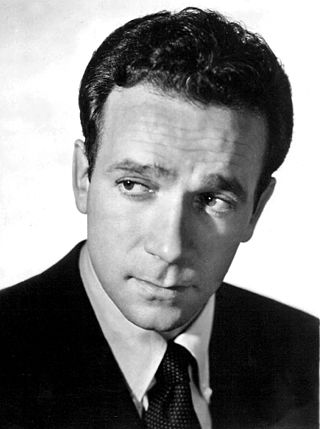
Dane Clark was an American character actor who was known for playing, as he labeled himself, "Joe Average."

Arnold Moss was an American character actor.
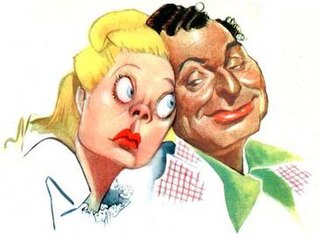
The Phil Harris-Alice Faye Show, was a comedy radio program which ran on NBC from 1948 to 1954 starring Alice Faye and Phil Harris. Harris had previously become known to radio audiences as the band-leader-turned-cast-member of the same name on The Jack Benny Program while Faye had been a frequent guest on programs such as Rudy Vallée's variety shows. After becoming the breakout stars of the music and comedy variety program The Fitch Bandwagon, the show was retooled into a full situation comedy, with Harris and Faye playing fictionalized versions of themselves as a working show business couple raising two daughters in a madcap home.

Catherine Lee Lewis was an American actress on radio, film, and television. She is remembered best for numerous radio appearances but also noted for making a number of film and television appearances in the last decade of her life.

Elliott Lewis was an American actor, writer, producer, and director who worked in radio and television during the 20th century. He was known for his ability to work in these capacities across all genres during the golden age of radio, which earned him the nickname "Mr. Radio". Later in life, he wrote a series of detective novels.
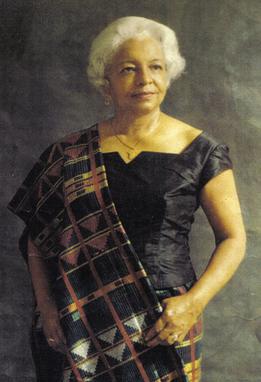
Helen Elsie Austin, known as H. Elsie Austin as an adult, was an American attorney, civil rights leader, and diplomat from the Midwest. From 1960 to 1970, she served for ten years with the United States Information Agency (USIA) on various cultural projects in Africa. The first African-American woman to graduate from the University of Cincinnati School of Law, Austin was appointed in 1937 as an assistant attorney general in Ohio. She was the first Black and the first woman to hold this position.

Suspense is an American television anthology series that ran on CBS Television from 1949 to 1954. It was adapted from the radio program of the same name which ran from 1942 to 1962.
Stage 13 is a 30-minute American anthology television series produced, directed, and written by Wyllis Cooper. It ran on CBS from April 19, 1950, to June 28, 1950.
Stars over Hollywood is a radio anthology in the United States. It was broadcast on CBS from May 31, 1941, to September 25, 1954, sponsored first by Dari-Rich, Carnation Milk and later by Armour and Company.
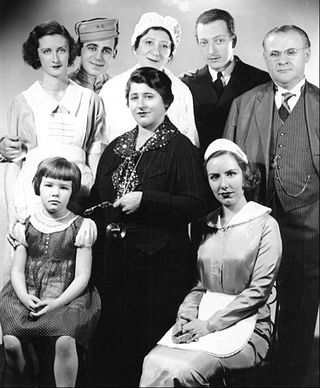
House of Glass is an American old-time radio serial drama. It was broadcast on the Blue Network from April 17, 1935, until December 25, 1935, and revived on NBC from October 23, 1953, until March 12, 1954.
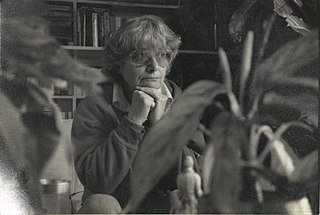
Shirley Gordon was an American writer of radio programs, television shows, and children's books.

John Clark Howat was an American film and television actor.

Frances Helm was an American stage, film, and television actress whose performing career spanned nearly fifty years.

Frank Sherwood Gell was an American film and television actor. He was known for playing General J. E. B. Stuart in the American historical television series The Gray Ghost.
American Inventory is a thirty-minute weekly filmed educational series that first aired as a summer replacement Sunday nights during 1951 on NBC. It was funded by the Alfred P. Sloan Foundation with NBC donating the broadcast time and facilities. The series incorporated panel discussions, lectures from experts, film of activities and events taking place out of the studio, and occasional in-studio dramatic scenes. It was an ambitious project, the first educational series produced and broadcast by a network.
Thonnis Watson Calhoun was an American writer of plays, radio programs, and television shows.
References
- ↑ Lackman, Ronald W. (2000). The encyclopedia of American radio : an A-Z guide to radio from Jack Benny to Howard Stern. Lackmann, Ronald W. (Updated ed.). New York: Facts On File. ISBN 0816041377. OCLC 41531878.
- ↑ Gordon, Shirley (1946-11-03). "Radio a La Lewis" (PDF). Radio Life. Retrieved 2020-02-25.
- 1 2 Dunning, John (1998). On the Air: The Encyclopedia of Old-Time Radio (Revised ed.). New York: Oxford University Press. pp. 512–514. ISBN 978-0195076783. OCLC 35586941 . Retrieved December 23, 2024.
- ↑ Schaden, Chuck. (2003). Speaking of radio : Chuck Schaden's conversations with the stars of the golden age of radio. Morton Grove, Ill.: Nostalgia Digest Press. pp. 232, 234. ISBN 0-9743180-0-0. OCLC 53283010.
- ↑ Terrace, Vincent (2003). Radio program openings and closings, 1931-1972. Jefferson, N.C.: McFarland & Co. ISBN 0786414855. OCLC 51914298.
- ↑ Archives., Thousand Oaks Library. American Radio (2006). Radio series scripts, 1930-2001 : a catalog of the American Radio Archives collection. Berard, Jeanette M., Englund, Klaudia. Jefferson, N.C.: McFarland. ISBN 9780786424696. OCLC 63807638.
- 1 2 Martin, Grams (2000). Radio drama : a comprehensive chronicle of American network programs, 1932-1962. Jefferson, N.C.: McFarland. ISBN 078640051X. OCLC 41355701.
- ↑ "In Review" (PDF). Broadcasting Television. 1953-11-09. p. 16. Retrieved 2020-02-26.
- 1 2 3 4 5 6 7 8 9 10 11 12 13 14 15 16 17 18 19 20 21 22 23 24 25 26 27 28 29 30 31 32 33 34 "Cathy and Elliott Lewis On Stage" – via Internet Archive.
- ↑ "Suspense - Beirut by Sunrise". Escape and Suspense!.
- ↑ "Romance - Single Episodes". 2013-01-23 – via Internet Archive.
- 1 2 "20 Aug 1948, 6 - Wisconsin State Journal at Newspapers.com". Newspapers.com.
- ↑ "Album reviews". The Billboard. 1948-06-12.
- ↑ Merrick, Leonard (December 23, 2017). Conrad in Quest of His Youth: An Extravagance of Temperament – via Project Gutenberg.
- ↑ "[Unknown]". The Honolulu Advertiser. 23 August 1953. Retrieved 12 July 2019– via Newspapers.com.
- ↑ "[Unknown]". The Tampa Times. 30 July 1953. Retrieved 12 July 2019– via Newspapers.com.
- ↑ "6 Aug 1953, 28 - The Los Angeles Times at Newspapers.com". Newspapers.com.
- 1 2 3 4 5 "SPERDVAC Script Library". www.sperdvac.com.
- ↑ "Thonnis W. Calhoun - WGA Directory". directories.wga.org. Retrieved 2019-07-01.
- ↑ "27 Aug 1953, Page 24 - Courier-Post at Newspapers.com". Newspapers.com.
- ↑ "[Unknown]". The Battle Creek Enquirer. 9 September 1953. p. 19. Retrieved 12 July 2019– via Newspapers.com.
- ↑ "7 Oct 1953, Page 22 - Arizona Daily Star at Newspapers.com". Newspapers.com.
- ↑ "14 Oct 1953, Page 16 - Courier-Post at Newspapers.com". Newspapers.com.
- ↑ "28 Oct 1953, 8 - Albany Democrat-Herald at Newspapers.com". Newspapers.com.
- ↑ "Suspense 1956 - Single Episodes". July 12, 1956 – via Internet Archive.
- ↑ https://www.americanradiohistory.com/Archive-BC/BC-1953/BC-1953-11-09.pdf [ bare URL PDF ]
- ↑ "11 Nov 1953, 41 - Dayton Daily News at Newspapers.com". Newspapers.com.
- ↑ "25 Nov 1953, Page 7 - The Times at Newspapers.com". Newspapers.com.
- ↑ "9 Dec 1953, Page 27 - Arizona Republic at Newspapers.com". Newspapers.com.
- ↑ "6 Jan 1954, 33 - Dayton Daily News at Newspapers.com". Newspapers.com.
- ↑ "4 Feb 1954, 26 - The Los Angeles Times at Newspapers.com". Newspapers.com.
- ↑ "10 Feb 1954, 37 - Dayton Daily News at Newspapers.com". Newspapers.com.
- ↑ "17 Feb 1954, Page 35 - Battle Creek Enquirer at Newspapers.com". Newspapers.com.
- ↑ "Suspense - Heavens to Betsy". Escape and Suspense!.
- ↑ "31 Mar 1954, 41 - Dayton Daily News at Newspapers.com". Newspapers.com.
- ↑ "14 Apr 1954, 9 - The Tampa Times at Newspapers.com". Newspapers.com.
- ↑ "21 Apr 1954, 50 - The Daily Times at Newspapers.com". Newspapers.com.
- ↑ "17 Jun 1954, 14 - Des Moines Tribune at Newspapers.com". Newspapers.com.
- ↑ "24 Jun 1954, 17 - Des Moines Tribune at Newspapers.com". Newspapers.com.
- ↑ "1 Jul 1954, Page 20 - Arizona Daily Star at Newspapers.com". Newspapers.com.
- ↑ "8 Jul 1954, 11 - The Boston Globe at Newspapers.com". Newspapers.com.
- ↑ "15 Jul 1954, Page 23 - The Times at Newspapers.com". Newspapers.com.
- ↑ "22 Jul 1954, Page 26 - Battle Creek Enquirer at Newspapers.com". Newspapers.com.
- ↑ "12 Aug 1954, 26 - The Daily Times at Newspapers.com". Newspapers.com.
- ↑ "15 Aug 1954, Page 52 - Lubbock Avalanche-Journal at Newspapers.com". Newspapers.com.
- ↑ "26 Aug 1954, Page 34 - The Akron Beacon Journal at Newspapers.com". Newspapers.com.
- ↑ "26 Aug 1954, 15 - Des Moines Tribune at Newspapers.com". Newspapers.com.